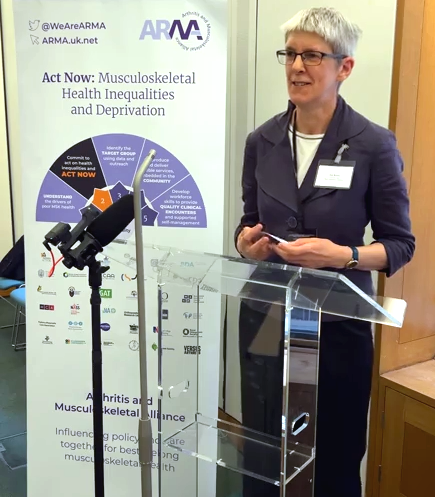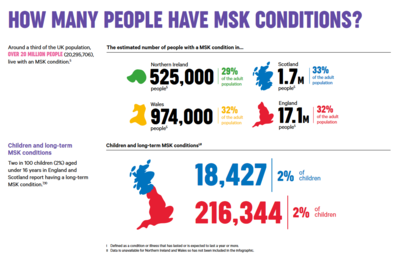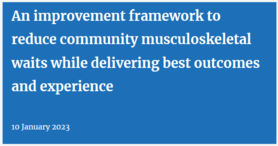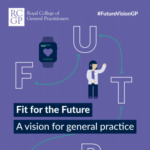 by Sue Brown, CEO ARMA
by Sue Brown, CEO ARMA
After two days in Belfast launching the ARMA MSK Health Inequalities report in Northern Ireland, I found myself on the plane back to England drafting the ARMA response to the Darzi report. I don’t think there are any new revelations in the report. Yet I do think it is important, and something everyone concerned about MSK health should take seriously. I recognise the truth in what it says.
Lord Darzi was asked to carry out an independent investigation into the NHS in England with a very short timescale.…
Read more of this article




 by Sue Brown, CEO ARMA
by Sue Brown, CEO ARMA
 In January 2023, NHS England published “an improvement framework to reduce community musculoskeletal waits while delivering best outcomes and experience”.
In January 2023, NHS England published “an improvement framework to reduce community musculoskeletal waits while delivering best outcomes and experience”.

 The Royal College of GPs (RCGP) has published a
The Royal College of GPs (RCGP) has published a